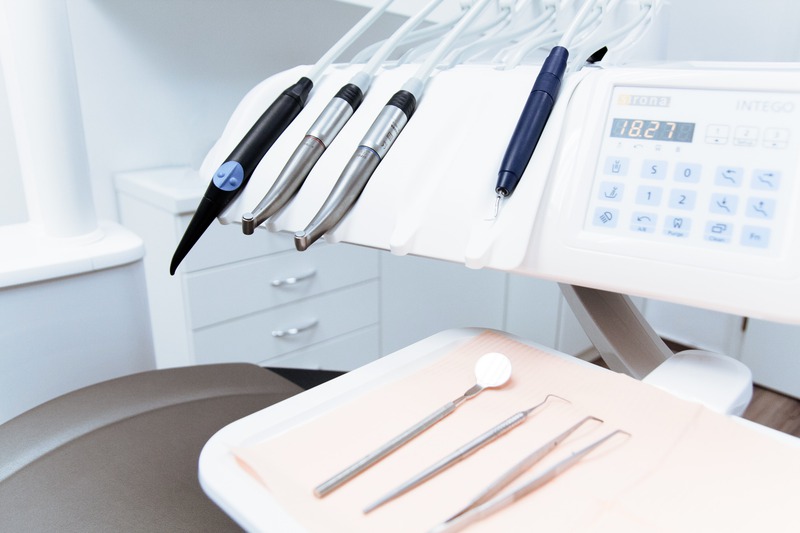Dental crowns are a popular procedure in restorative dentistry and are used to help repair damaged teeth. Whether it’s due to dental decay, trauma, or simply age, dental crowns have become a beacon of hope for many individuals looking to revive their smile. These custom-made “caps” are designed to fit over your teeth, enhancing their appearance and functionality.
Proper Cleaning of Your Dental Crowns
Proper cleaning of dental crowns is essential for maintaining oral health and preserving the longevity of the dental restoration. Here are key steps to ensure the cleanliness of your dental crowns:
1. Daily Brushing and Flossing
Start by maintaining a consistent and thorough oral hygiene routine. Brush your teeth at least twice a day, preferably in the morning and before bedtime. Use a soft-bristled toothbrush and fluoride toothpaste. Pay extra attention to the gum line and the surfaces of your dental crowns to eliminate plaque and prevent gum disease. Flossing is equally important to clean between teeth and around the base of the crowns where the tooth meets the gum.
2. Mouth Rinse
Incorporate a mouth rinse or mouthwash into your oral care routine. Choose an antiseptic or fluoride mouthwash that your dentist approves. Swish the mouthwash around your mouth for the recommended time to reach areas that may be challenging to brush. This helps reduce bacteria and maintain a healthy oral environment.
3. Special Dental Care Products
Consider using additional dental care products that can enhance the cleaning effect around your dental crowns. Some options include:
- Water Flossers: These devices use a stream of water to clean between teeth and along the gum line, providing effective plaque removal.
- Interdental Brushes: Small brushes designed to clean between teeth and around dental work, including crowns. They are particularly useful for reaching areas that may be difficult to access with traditional floss.
4. Professional Dental Care
Schedule regular dental check-ups and cleanings with your dentist. Professional cleanings can remove stubborn plaque and tartar that may accumulate around Reston dental crowns. During these appointments, your dentist can also assess the condition of your crowns and address any concerns.
5. Avoiding Harmful Habits
Be mindful of habits that can potentially damage dental crowns. Avoid chewing on hard objects, such as ice or pens, as this can lead to chipping or cracking. Additionally, refrain from using your teeth as tools for opening packages or bottles.
- Avoid hard foods: Try not to bite down on hard foods as they could potentially damage your dental crowns.
- Wear a mouth guard: If you are active in sports, consider wearing a mouth guard to protect your dental crowns from injury.
- Don’t use your teeth as tools: Avoid using your teeth for anything other than eating. Using them to open bottles or break strings can cause damage.
6. Dietary Considerations
Pay attention to your diet for optimal dental health. Limit sugary and acidic foods and beverages, as these can contribute to plaque buildup and compromise the integrity of dental restorations.
The Value of Proper Dental Crown Care
Proper care of dental crowns is crucial to ensure their longevity and effectiveness in maintaining oral health. Here are several reasons highlighting the value of proper dental crown care:
- Preservation of Natural Teeth: Dental crowns are often used to protect and preserve damaged or weakened natural teeth. Proper care, including regular brushing, flossing, and dental check-ups, helps in maintaining the health of the underlying tooth structure. This contributes to the overall preservation of natural teeth and prevents further decay or damage.
- Prevention of Gum Disease: Good oral hygiene practices, such as thorough brushing and flossing around dental crowns, contribute to the prevention of gum disease. Bacteria and plaque buildup at the margins of crowns can lead to gum inflammation and infection. Proper care helps maintain healthy gums, providing a stable foundation for the dental crown.
- Longevity of Dental Restorations: Dental crowns are designed to be durable, but their longevity is influenced by proper care. Regular maintenance, including professional cleanings during dental check-ups, helps prevent the accumulation of plaque and tartar, which can compromise the integrity of the crown. With proper care, dental crowns can last for many years.
- Aesthetic Appeal: Dental crowns are often placed on visible teeth, and their aesthetic appeal is important for a natural and attractive smile. Proper care, including avoiding staining substances and practicing good oral hygiene, helps preserve the appearance of dental crowns. Regular dental check-ups may also involve professional cleaning to remove surface stains.
- Prevention of Complications: Neglecting proper dental crown care can lead to complications such as decay, damage to the underlying tooth, or issues with the crown itself. Timely identification and addressing of any issues during routine dental check-ups prevent complications and the need for more extensive interventions.
- Comfort and Functionality: Well-maintained dental crowns contribute to the comfort and functionality of the bite. Ensuring that the crown fits properly, the underlying tooth is healthy, and there are no signs of damage or misalignment helps in maintaining optimal oral function.
- Cost-Effectiveness: Proper care of dental crowns is a cost-effective approach. Regular preventive care is generally more affordable than the need for extensive repairs or replacement due to neglect. Investing in proper care from the outset can save both time and resources in the long run.
The Lifespan of Dental Crowns
With good oral hygiene and regular dental visits, dental crowns can last between 5 to 15 years. However, practicing extra care and caution can help you maximize this lifespan. Remember, the longevity of your dental crowns largely depends on how you care for them.
Featuring Veneers
While we’re exploring the world of dentistry, it’s essential to shed light on another popular procedure: Veneers in Reston VA. Veneers are thin shells, usually made of porcelain or composite resin, that are custom-designed to cover the front surface of your teeth. Much like dental crowns, veneers can dramatically enhance your smile, concealing imperfections like discoloration, malformation, or spacing issues.
Maintaining Dental Crowns vs. Veneers
Despite the difference in their function and application, the care and maintenance for both dental crowns and veneers remain quite similar. Consistency with proper oral hygiene practices, routine dental check-ups, and mindful habits relating to food and activities are critical.
Conclusion
Investing in dental procedures such as dental crowns and veneers can significantly enhance your smile. However, like all investments, they need to be cared for. By adopting proper oral care habits and undergoing routine dental check-ups, you can maintain and care for your dental crowns and veneers, ensuring your teeth are in top shape for years to come.




